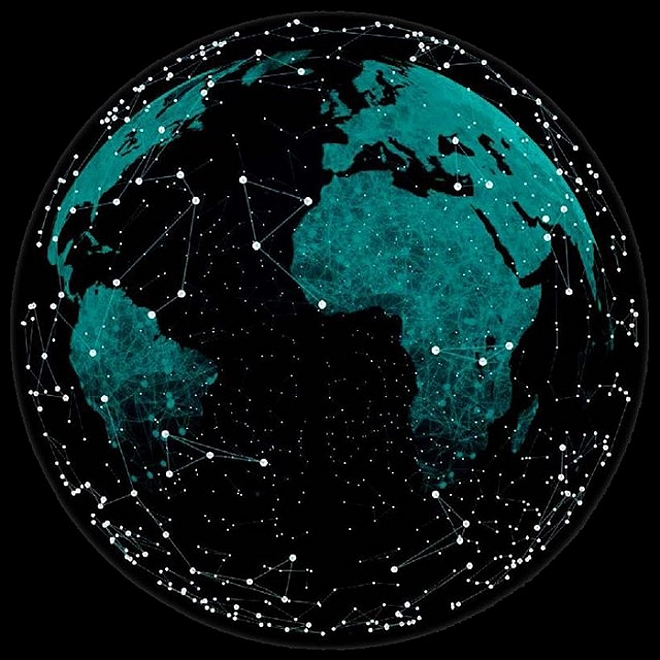Tax management consulting for indirect tax
Deloitte offers assistance to companies and public bodies in automating a broad range of Indirect Tax processes into their organisations’ tax technology platform.
Deloitte offers assistance to companies and public bodies in automating a broad range of Indirect Tax processes into their organisations’ tax technology platform. Our Tax Technology specialists – together with a combination of business consultants, and the vast resources of Deloitte’s global network of international and indirect tax experts – take a global integrated approach to helping you make the successful transition to a system that works for you. We work with you on finding the optimum solution to:
- improve the control over your data;
- mitigate risk;
- increase efficiency in your tax-relevant processes; and,
- post factum analysis of the transactional data.
VAT
While implementing or upgrading an ERP system, organisations often overlook the importance of the tax department as stakeholders in the implementation. In failing to address adequately the specific needs and requirements of the VAT aspects during the implementation, potential areas for automation are overlooked and the tax department is forced to continue inefficient manual processes for VAT reporting and quality review.
A flawless tax reporting process is a key challenge for every global organisation. Enterprise Resource Planning (“ERP”) systems such as SAP and Oracle have embedded tax functionalities that facilitate a transparent, robust and efficient tax reporting process. However, these tools will only work effectively if tax is considered at the start of planning and designing an ERP implementation or upgrade. Without bridging the gap between the tax processes and the ERP’s financial modules, the system might not do what you expect or want it to do.
VAT integration within your technology platform
Our Tax Management Consulting team helps clients optimise the tax functionalities within their technology platform, be it during (i) the selection of new ERP/tax software, (ii) the ERP implementation roadmap or (iii) the fine-tuning or maintenance of the tax tools in an existing solution.
Application of native ERP functionalities
A company may decide to keep the tax functionalities within the native ERP system (e.g. SAP, Oracle or other). Deloitte can assist in the design of the tax solution, ensuring that all business flows are correctly mapped and are seamlessly integrated within the tax logic, ensuring accurate invoicing and reporting.
Tax engines
Tax engines may replace certain features of the ERP’s native tax functionality whenever this is required. Tax engines, such as Sabrix, Taxware, Vertex and Zytax, can be retained to automate tax decisions within an ERP or accounting system. Deloitte has vast experience in implementing these tax engines on a global scale.
Other tools
We also help organisations establish control and visibility over the entire tax reporting process, with the implementation of proprietary or third party tools helping you to:
- report AP transactions using the correct tax code (e.g. Deloitte’s tax code automation SAP VIM),
- compile your tax returns (Thomson Reuters ONESOURCE),
- reconcile your VAT returns with your Intrastat returns (VAT Intrastat reconciliation tool),
- Deloitte’s Tax Data Analytics: identify and analyse electronic data of an unusual or unexpected nature, enhancing your VAT and accounting data quality and integrity.
VAT/ERP process review
Many companies have existing ERP systems which they do not intend to re-design or replace any time soon – but would like to feel more comfortable with regard to the system doing the right things, in particular for VAT. Getting it wrong can lead to assessments of tax, interest and penalties with a direct impact on the financial statements. And, as transactions are often handled by people far removed from the tax department, it can be difficult for the CFO and tax director to get a comprehensive view.
With a VAT/ERP process review , Deloitte has developed a unique methodology to:
- perform a high-level review of the current ERP system’s VAT functionality;
- analyse the VAT processes from a risk and control perspective;
- quantification of possible risk and opportunities; and,
- report our findings and recommendations.
Customs and Global Trade
What does the automation of global trade management mean?
Global trade automation is the process of streamlining all aspects of global trade (both import and export) across your business including order, supply chain and tax. Effective implementation of automation solutions significantly improves operating efficiencies and cash flow whilst also ensuring that businesses remain compliant with international trade regulations.
A strategic approach to implementing global trade software can improve business performance by reducing delays in the supply chain and driving cost reduction by helping mitigate customs duties, improving cash flow, adding transparency to international trade related costs. Global trade automation solutions can also enhance compliance with complex export control regulations.
Why automate?
Automation of internal controls to manage export and customs obligations allows all necessary operational international trade functions to be performed quickly and effectively with minimum disruption to day-to-day business activities. For example, a shipment could be automatically checked against denied party lists allowing immediate release of the goods without disruption to the shipment process.
Businesses often face pressure to reduce costs, achieve low inventories and optimize the supply chain. Automation of trade processes facilitates faster cross-border transactions, and increases control of costs associated with international trade. It also significantly lessens administrative costs, decreases the risk of human error and reduces the need for expensive trade compliance professionals.
Achieving these high general standards of compliance and control without an automated system can be labor intensive and requires export resources. Effective trade compliance also relies on obtaining large amounts of data from across the business, a daunting task without automated processes.
Global Trade automation services
Deloitte Tax’s Customs & Global Trade (CGT) team has the skills, tools, and experience to help you focus on taking the above challenges and turning them into competitive advantages. In this respect, we provide the following services to our clients:
Common issues
Fragmented ownership of processes
Operational execution in “silos”
No or substandard global policies or procedures in place
Not clear what the vendors actually have and do not have
Unsure which solution best addresses your needs
Challenged by how to automate a manual process
Require an implementation team with trade knowledge, automation, and configuration experience
Need project management skills to drive a crossfunctional/global implementation
Need a proven implementation methodology
Challenged by securing funding
Service options
Process focus:
Process design and mapping
process re-engineering
process standardization
Vendor focus:
Vendor selection
existing tool rationalisation
Automation design focus:
Customisation and configuration
process design and re-engineering for automation
Implementation focus:
On-site/dedicated team
project management knowledge
technical specialists (trade and system)
Business case focus:
Business case for automation
Data analytics



